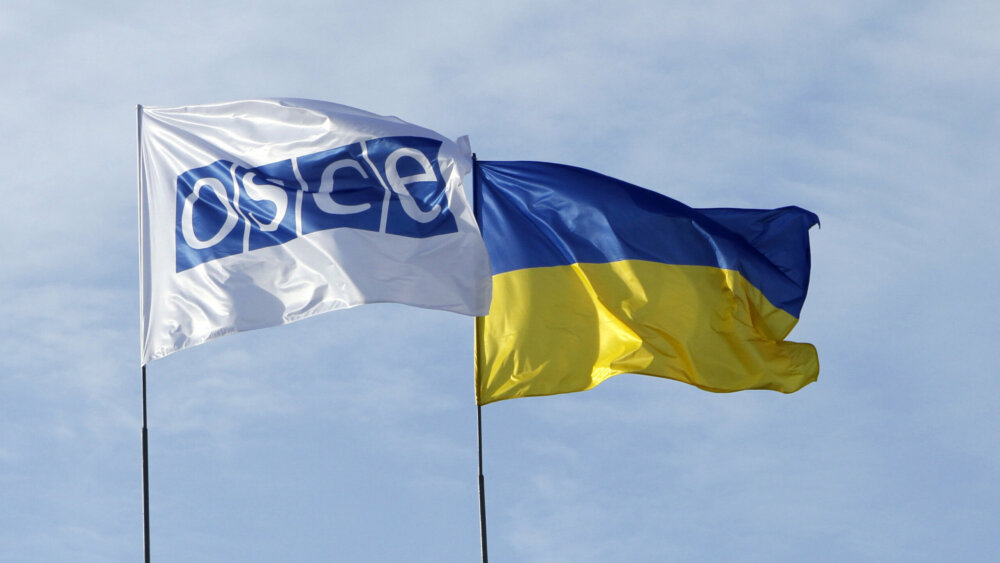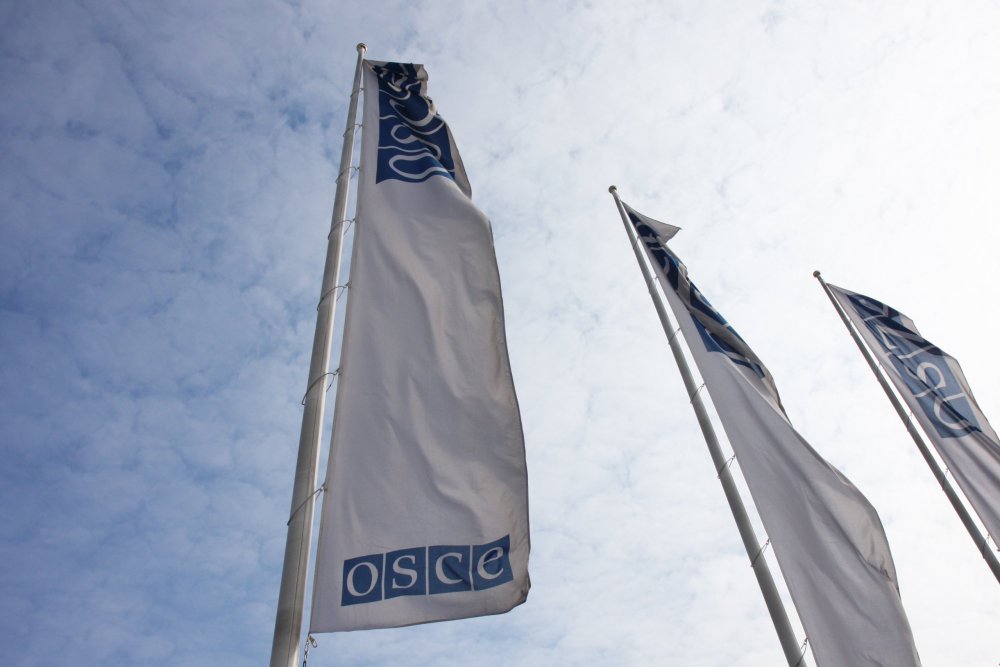OSCE/Igor Schimbător

OSCE Moldova mission mandate extended for six months
A special meeting of the OSCE Permanent Council on Thursday approved the renewal of the mandate of the OSCE mission to Moldova for six months until December 31.
The six-month renewal was a compromise solution that emerged after a process of several weeks of negotiations, led by North Macedonia in its capacity as OSCE chair and involving all 57 OSCE participating states.
The majority of states would have preferred a 12-month extension, but the Russian Federation wanted to limit the extension to 6 months, OSCE diplomats with knowledge of the matter told SHR Monitor.
The representative of the European Union, Canada, the U.S., the United Kingdom and Moldova all made statements at the Permanent Council meeting, regretting the fact that it was not possible to extend the mission mandate for the regular one-year period.
13 other countries aligned themselves with the EU statement, including North Macedonia, Montenegro, Serbia, Albania, Ukraine, Moldova, Bosnia and Herzegovina, Georgia, Iceland, Liechtenstein, Norway, Andorra and San Marino.
Until 2021, the mandate of the mission had regularly been extended for one year.
The OSCE mission to Moldova, which has been operating in the country since 1993, is primarily tasked with facilitating a “lasting, comprehensive political settlement” of the Transdniestria conflict, according to its mandate adopted by consensus in 1993.
The conflict dates back to 1990, when the predominantly Russian-speaking region of Transdniestria seceded from Moldova. A brief war followed in 1992 and Russian troops have been stationed in the breakaway region of Transdniestria ever since.
The OSCE is engaged in conflict resolution primarily within the so-called 5+2 format that includes Moldova and Transdniestria as the two sides in the conflict, the OSCE, Russia, and Ukraine as mediators, and the EU and the U.S. as observers.
The negotiators try to work out a comprehensive settlement of the conflict, which would guarantee the sovereignty and territorial integrity of Moldova within its internationally recognized borders while granting a special status for Transdniestria within Moldova.
But when Russia launched its full-scale invasion of Ukraine in February 2022, the OSCE’s conflict resolution efforts were put on hold, mainly because two of the main mediators are at war with each other.
The last time the 5+2 group met was in October 2019, after which in-person meetings were paused, first due to the pandemic and then as a result of the war.
The Russian mission to the OSCE responded to a request for comment, stating that Moscow assumed that “all efforts in the coming six months period should be aimed at revitalization” of the 5+2 format.
“First of all, concrete steps must be taken to restart the negotiation platform in the 5+2 format, which is the only mechanism for achieving a comprehensive and sustainable settlement of the conflict,” the statement read, adding that “pauses in the work of this format do not contribute to progress in negotiation efforts.”
The statement concluded that “a real measurable progress in the 5+2 format will secure the future of the Mission [to Moldova].”
In an effort to ensure uninterrupted diplomatic contacts, Moldovan and Transdniestrian chief negotiators did continue to meet together in a 1+1 format, most recently on June 21, facilitated by Ambassador Kelly Keiderling, the head of the OSCE mission to Moldova.
The OSCE mission to Moldova also implements other key projects, including in the area of rule of law, national minorities and human rights. It also monitors the situation in the security zone between Moldova and Transdniestria and on the border with Ukraine.
The OSCE chairmanship of North Macedonia put out a statement on Twitter, welcoming the unanimous approval of the mandate extension. “The invaluable work & efforts of the field operations are highly appreciated & remain a top priority for #OSCE2023.”
Last year, the OSCE was forced to close down its field operations in Ukraine, including its flagship Special Monitoring Mission, after Russia vetoed an extension of the respective mandates.



Comments
* Your email address will not be published